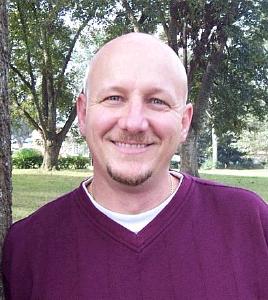If, as Albert Einstein said, insanity is doing the same thing over and over again while expecting different results, then Atlanta qualifies as the craziest region in the country. It keeps expanding highways, convinced that this time it will somehow solve its congestion problems, only to be puzzled when traffic gets even worse. What’s weird is that leaders in Atlanta know that the old ways don’t work, but yet they persist. Why?
Good question. Some believe that the state government in general and the transportation department in particular are so beholden to highway construction interests that they dare not walk away from this losing strategy. (To read an article about this theory, click here.) Another theory: State transportation officials have given up on the future. That is, they’ve spent their careers building increasingly dysfunctional highways, and while that clearly no longer works, they can’t imagine anything working any better. The chair of the DOT board framed this defeatist philosophy when he told an Atlanta Journal-Constitution reporter, “As much as we all would love to see everyone ride a bike or a skateboard or a pony to work, it’s just not going to happen.”
And yet leaders in the Atlanta area know better. Two years ago, a task force of top political and business leaders (including some of the region’s top developers) produced a strikingly clear alternative to the DOT’s defeatism. The answer, the Quality Growth Task Force said, was to intelligently link transportation to land use, so that major transportation corridors become far more densely developed than they are today. Predicted result: Many will live close enough to work to walk, and even those who don’t will be much closer to the transit lines and highways that can take them to work. (To view the task force’s report, click here.)
So given this clear new vision — the answer lies in land use and intelligent transportation, not more dumb highway lanes — what has the region chosen to do? Build more dumb highway lanes. They’ve done this by changing the way the region ranks transportation projects, by considering “congestion relief” ahead of any other factor. Long-suffering transit advocates say this simply translates into more freeways, which will disperse population even farther, which will then create more congestion. Perversely, it actually rewards places that don’t do what the Quality Growth Task Force urged, which is to plan for fewer car trips. “What it will favor are the areas who fail to plan,” one transit advocate told the Journal-Constitution, “The more congested you are, the more money you will get.”
Atlanta’s leaders can’t say they didn’t know what they were doing. A week before the decision, a Georgia Tech planning professor wrote an article for the Journal-Constitution warning that the funding change would lead to disaster. “While building our way out of traffic congestion might sound like a reasonable approach,” Brian Stone wrote, “it is flawed in one important respect: It does not work.” What does work, Stone said, is what the Quality Growth Task Force recommended: Land use that allows people to live close to work, a lot more transit and serious pedestrian infrastructure. He didn’t say this, but a few more skateboard and pony paths would be nice too.
~ Otis White writing in the Feb. issue of GOVERNING
Friday, March 03, 2006
Subscribe to:
Post Comments (Atom)

No comments:
Post a Comment